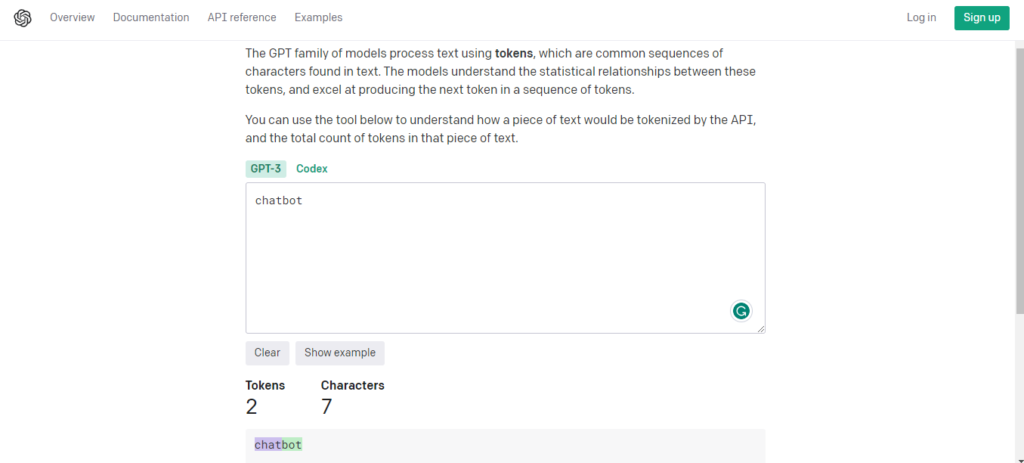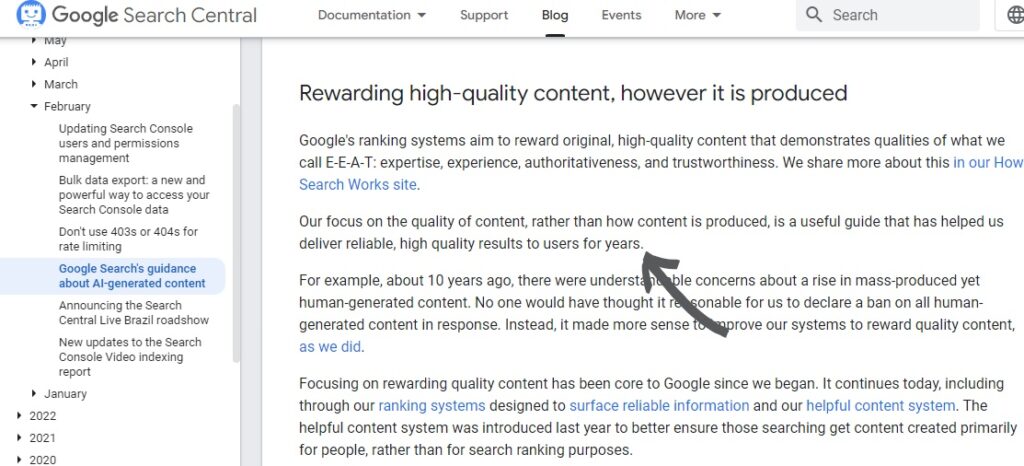Introduction
Have you ever wondered how good our AI friends like ChatGPT are doing at playing hide and seek with us? It’s exciting to watch their influence spreading into new areas, from customer service to creative writing, and it’s already had a significant effect. Despite this, as our Silicon buddies continue to get more intelligent, so does our natural curiosity. Are these ChatGPT models giving us accurate information, or are they trying to hide anything from us?
Suddenly, the reliability of these AI-powered robots has become a major issue, deserving of serious consideration. If we’re entrusting these algorithms with our communications, shouldn’t we be able to distinguish between an AI and another human? This highlights the urgent need for ChatGPT detection algorithms that are both effective and efficient in their ability to detect AI.
Let’s take the leap of faith into this bold new universe, shall we? What kind of accuracy can you expect from these ChatGPT detectors? Are they able to differentiate between AI and humans? Get ready to go on this exciting adventure of discovery with us!
What are ChatGPT Detectors?- Definition and purpose of Chat GPT detectors aka ai content detector
ChatGPT Detectors are algorithms or systems that are used to identify situations in which the ChatGPT model could provide incorrect or improper answers. In order to promote the appropriate usage of AI language models, these detectors try to reduce possible problems like biased, offensive, or misleading outputs.
How does ChatGPT Detector work?
ChatGPT Detector does an analysis of the text in order to detect whether or not it was produced by an AI language model or whether it was written by a human. It does this by using a mix of natural language processing (NLP) and machine learning (ML) approaches. Before analyzing the order and frequency of words, the program tokenizes the text into individual words. In addition to this, it analyzes the text in terms of its grammar, syntax, and punctuation.

Following this, the program makes comparisons between the input text and a database of previously identified AI-generated text. New samples of text generated by various language models, such as GPT-4 (Best models), GPT-3, GPT-2, and others, are added to the database on a regular basis. The text will be categorized as AI-generated if the program identifies that it is comparable to a known AI-generated text sample.
How accurate are AI detectors?
Ever questioned if a piece of writing was created by a person or a language model like ChatGPT? That’s where AI detectors come in helpful; their main function is to detect AI-generated information within a large body of text. However, it is essential to keep in mind that these detection tools, just like any other tool, do have their limitations and are not foolproof.
In our effort to determine which AI detectors are the most effective, we scrutinized ten different artificial intelligence (AI) tools. What we found out could come as a surprise to you. These AI content detectors were only able to detect AI writing with an accuracy of around 60% on average. When it comes to free tools, the one that scored the highest reached a respectable 68%, while the one that scored the most among premium tools reached an impressive 84%.
You may be wondering why it is that these AI detectors can’t promise a hundred per cent success rate. The answer is quite easy. There is always the possibility of producing false positives, which refer to situations in which human-written content is mistakenly identified as being generated by AI. This is a basic drawback of any AI detection tool.
So, should you completely ignore these AI tools? Definitely not! They are unable to give definitive evidence as to whether the text was created by AI or was authored by humans, but they are able to provide significant signs in this regard. Think of them as AI tools that complement other kinds of proof.
If Detection Scores Aren’t Accurate – Why Bother With Detection Tools At All?
Is it smart to depend on an AI detection tool that may not have 100% accuracy?
Imagine a world in which AI content is unrestrained and unchecked. The consequences could be terrible.
Web Publishers, if you are concerned about adhering to Google’s guidelines regarding AI-generated content, “Using automation—including AI—to generate content with the primary purpose of manipulating ranking in search results is a violation of our spam policies,” then an AI detection tool is vital for the safety of your website. Google has stated that this type of content is a violation of their spam policies. If, on the other hand, you are satisfied with publishing material that was created by AI, then it is possible that you do not need tools such as the chat GPT detector or the services of experienced authors.

Content Marketing Agencies
Without the use of AI detectors, which are specifically designed to detect AI-produced content, it is difficult to ensure customers that the written content received was not created by an AI model.
Writers
It would be difficult to evaluate the value of your content generated by a human in the presence of competition from the numerous ChatGPT users without AI detectors.
Academics (Students, Professors, and Institutions):
If we let generative AI continue to run uncontrolled, this might reduce the value of the degrees that are awarded.
We need to change in order to compete with ChatGPT and other artificial intelligence (AI) technologies like HuggingChat that are currently on the market. Not being able to tell the difference between human and mass AI-created propaganda information has far-reaching social consequences, which aren’t even addressed here.
What is False Positive in AI
In AI, a false positive is an error when the system incorrectly recognizes an event as true. For instance, an AI text analyzer may incorrectly label a piece written by a human as having been created by AI, resulting in the creation of a false positive.
How Should AI Detectors Be Used?
How should we use AI devices like the ChatGPT detector or the GPT detector in a world where false positives are a constant concern? Recognizing that no AI detection tool, be it a new AI or a particularly developed AI text classifier, can vouch for total assurance – there is no unchallengeable AI model that can certify, “This written content was, beyond a shadow of a doubt, generated by AI or specifically, generated by ChatGPT.”
So, what is the strategy going forward? We shouldn’t impose strict guidelines that need each piece of content to outperform a certain AI score. Instead, we may employ AI content detection tools like the ChatGPT detector to evaluate a writer’s body of work. This strategy could be able to help us differentiate between those who are most likely using generative AI for content production and those who are continuing to rely on plain old-fashioned human wit.
What if the text was generated using ChatGPT? Would it significantly alter our understanding of the written content? The use of ChatGPT or any other artificial intelligence bot may be helpful, but it cannot completely replace the human element. Just keep in mind that even the most sophisticated AI models, such as the ones produced by OpenAI or the technology that is powering ChatGPT, are less accurate than human intuition. As a result, the significance of the human eye in the process of recognizing texts that have been created by AI should never be underestimated.
“To understand ChatGPT’s data sources and how they contribute to its responses, read the article ‘CHAT GPT DATA SOURCE UNVEILED: FROM WHERE CHATGPT GET DATA’.”
Are ChatGPT Detectors Accurate Enough? (Video Explanation)
FAQ’s
Should AI Editing be Treated as AI or Original?
It depends on perspective and context whether AI-edited content is classified as AI or original. Some argue that AI editing should be acknowledged as a unique artistic contribution, whereas others argue that it should be recognized as a collaborative endeavour between the AI and the human creator. The answer relies on each person’s opinion and unique situation.
What is the accuracy rate of ZeroGPT?
ZeroGPT’s algorithm achieved a text detection accuracy of up to 98% after processing more than 10M articles and text, some of which were created by AI and others by humans. In order to determine where you found the text, their AI detector makes use of DeepAnalyst Technology.
Their tests are still in progress, but their goal is to evaluate a greater quantity of articles and text in order to achieve an error rate that is less than 2%.
How reliable are ChatGPT detectors?
ChatGPT detectors may indicate AI-generated material, however, their accuracy is limited. While they are capable of detecting numerous instances of AI-generated text, there is still the possibility of false positives and false negatives. It is suggested to use them as a helpful tool along with human judgment for more accurate results.
Can professors tell if you use ChatGPT?
As long as the text generated by ChatGPT is well-written and fits with your writing style, professors won’t be able to tell it came from ChatGPT. However, advanced plagiarism detectors may identify work that was created by AI. In order to avoid possible problems with academic integrity, it is vital to utilize AI-generated material in an ethical manner and to adequately credit sources.
What is the most accurate AI detector?
Originality.ai has shown a high level of accuracy when recognizing text that was created by AI. It has an average accuracy of 99.41% across many models including GPT-4, GPT-3, GPT-3.5, and ChatGPT for identifying AI-generated material. GPT-3 had the highest possible average score of 99.95%, followed by GPT-3.5 at 99.65% and ChatGPT at 98.65%.
Does ChatGPT show up on Turnitin?
Yes, Turnitin is able to detect text generated by AI, and this includes ChatGPT’s output. It employs complex algorithms to determine the degree of similarity between the information that is provided and that which is already available. Although it is not foolproof, it is essential to exercise caution and ensure proper citation and originality to avoid detection and academic integrity issues.
Can universities tell if you use ChatGPT?
Yes, artificial intelligence detectors that can spot content generated by ChatGPT are often seen in academic institutions. This highlights the need for academic honesty and the responsible use of information provided by AI. Always strive to create art that is completely unique.
Can ChatGPT code be detected?
It is quite unlikely that a teacher would be able to detect whether code was developed specifically by ChatGPT. As an artificial intelligence language model, ChatGPT’s primary goal is to produce readable text rather than computer code. On the other hand, there is a chance that the teacher will be able to detect similarities between your code and other code that has been submitted or that is freely accessible online. Plagiarism detection tools such as MOSS evaluate source code for similarities and may flag your code if it is very similar to code that has been submitted before or code that is publicly accessible.
How can I tell if a student used ChatGPT?
It might be difficult to determine whether a student utilized ChatGPT to write or generate content. It is necessary to conduct an analysis of the writing style, as well as evaluate the quality and coherence of the work, in addition to making use of AI detection tools that have been developed particularly for the purpose of detecting instances of plagiarism, such as Turnitin and Grammarly.
Can you be caught using ChatGPT?
There is no reliable method to detect ChatGPT use, although certain AI detection tools can see trends or discrepancies that might point to its use. It is essential to understand that detection methods are continuously evolving, so caution is advised when using ChatGPT in contexts where its use is discouraged or prohibited.
What is the best AI detection tool?
Originality AI stands out as a leading option among AI detection tools due to its exceptional performance. Their sophisticated content detector produces accurate results that can be relied on. You are able to guarantee the authenticity as well as the originality of your material by using Originality AI.
Is AI content detector accurate?
There is no standard level of accuracy for AI content detectors. Despite the substantial progress that has been achieved, it is still possible for there to be false positives and false negatives. To produce outcomes that can be relied on and trusted, regular review and human monitoring are both essential components.
Is GPTZero the best AI detector?
Although GPTZero has some promise, it is not yet the most advanced AI detector available. It is possible to specialize in certain sorts of detection; nevertheless, there is still a significant distance to go before it can achieve its full potential in the present market environment.
Is Turnitin AI detector accurate?
Turnitin’s AI detection tool is said to be quite trustworthy, with an alleged 98% accuracy rate in detecting AI-generated material. This shows how smart its detection methods are and how well they work.
How effective are ChatGPT detectors?
While detection systems exist, it is difficult for them to accurately recognize AI-generated text such as Chat GPT. Notably, Turnitin had reliability concerns with AI cheating detection, which highlights possible flaws in AI detection. This is a field that needs study and development on a continuous basis.
Is the AI text classifier accurate in detecting AI-generated content?
The OpenAI AI text classifier may be a helpful AI-generated content detector, although it is not perfect. Even while it is correct most of the time, it does make mistakes identifying human-written and AI-produced material sometimes, and this flaw may be worked around with very few tweaks.
What are the capabilities and limitations of the ChatGPT Detector?
ChatGPT Detector excels at understanding complex language structures, generating relevant responses, and mimicking human-like conversations. However, it can’t access real-time data(post-September 2021 data), has no personal experiences, and may produce inconsistent responses.
Are ChatGPT conversations private?
No, ChatGPT communications are not private. Every interaction on OpenAI is logged, including any personal data that is exchanged, and then used as training data. In accordance with the privacy policy outlined by OpenAI, the company collects personally identifiable information from the inputs and file uploads made by users, as well as the feedback offered for ChatGPT and other services.
Can ChatGPT Write My College Essay?
ChatGPT does have the ability to produce essays, but you shouldn’t utilize it to write your college essay. It fails to demonstrate the critical thinking, contextual awareness, and personal insight necessary for a strong essay. It is advisable to depend on your own knowledge and abilities or to contact a human expert when making a decision.
Can I have ChatGPT write my paper?
You shouldn’t depend on ChatGPT as your only source of research and inspiration, but it may help you get started on your work. It had a passing accuracy of sixty per cent on the medical licensing test, but it was not successful on the CPA exam. Utilizing ChatGPT as a tool for advice and verification, in addition to your own study and expertise, is the most effective course of action.
List of exams that chatgpt has passed so far.
Does ChatGPT store conversations?
Yes, OpenAI stores conversations as training data. Personal information shared during talks is recorded and used to improve the AI model. The privacy policy of OpenAI reveals that the organization does, in fact, gather personally identifiable information from user inputs, file uploads, and comments provided to ChatGPT and other services.
Does Google Penalize AI Content?
According to recent modifications to Google’s guidelines, there is no particular penalty for employing AI-generated material. It is essential, though, to check that the material meets Google’s quality guidelines and really helps readers. Maintaining compliance with rules and providing the material that is high-quality and relevant are both critical for achieving maximum exposure in search engines and providing the best possible user experience.
Is there a ChatGPT app?
There is a ChatGPT app for iOS devices, but Android users will have to wait a little longer. However, you can still access ChatGPT on various devices via web browsers.
Will Colleges Ban ChatGPT?
It is ultimately up to individual educational institutions to decide whether or not to prohibit or permit the use of ChatGPT on campus. It is dependent on a variety of issues including ethical concerns, the possible influence on education, and legal restraints. As of now, there is no clear agreement on whether schools will ban ChatGPT.

Pingback: Chat Gpt Data Source unveiled: From Where Chatgpt Get Data - GptCypher.com
Pingback: 3 Proven Prompts to Make ChatGPT Write Like a Human | No B.s Chatgpt Prompts - GptCypher.com
Pingback: "GPT Zero vs Quillbot: Can Gpt Zero Detect Quillbot" | Undetectable Quillbot? - GptCypher.com
Pingback: "Can ChatGpt Code be Detected: Tracing Footprints of ChatGPT" - GptCypher.com
Pingback: "Can Canvas Detect ChatGpt: Tracing Footprints of AI" - GptCypher.com